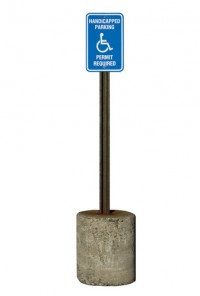Abusers of Disabled Parking Get Hefty Fines, Lose Placards in Chicago Crackdown; More Penalties Loom

Image from Shutterstock.
In a crackdown on a problem that has aggravated fellow drivers throughout the country, Chicago has begun an aggressive program to deal with disabled parking abusers.
Those found to be taking advantage of a disabled-parking placard that isn’t theirs, or is for a disabled person who isn’t using the vehicle, face citations carrying fines of $500 to $1,000, suspension of the driver’s licenses for six months to a year and towing and storage costs. Perhaps worst of all, their placards are confiscated when city and state police write the citations, according to the Chicago Sun-Times and the Chicago Tribune.
So far, in a sting operation that has been ongoing for approximately six weeks, there have been 41 placards confiscated and 47 citations. That’s about one person penalized for every five checks, despite prior publicity about the enforcement program. Just on Friday morning, a team of officers wrote four tickets and confiscated three placards in the downtown area.
Penalties for abusing the handicapped parking privilege, which allows holders to park for free in Chicago metered areas and use conveniently located handicapped spots, will increase Jan. 1, after which abusers could have their driver’s licenses revoked.
“I believe it is a violation of all laws of human decency for an individual to take advantage of a program that has been set aside for those who are truly in need,” said Secretary of State Jesse White. “Our mission is to make sure that those placards remain in the hands of those who are truly in need.”
Mayor Rahm Emanuel also introduced legislation this week to make it harder to get a placard. If it is approved by the city council, new restrictions would require applicants to live in the same household as the handicapped person and limit the number of disabled parking spots on any one block, according to additional Chicago Sun-Times and Chicago Tribune articles. Officials would also check to see whether applicants already have accessible parking at their own homes before establishing new handicapped spots for individuals on residential blocks.
A Chicagoist article provides additional details.
Related coverage:
ABAJournal.com: “Busted: Fla. Shoppers Admit Handicap Parking Abuse”
ABAJournal.com: “Mass. Lawyer Suspended for Using Client’s Handicapped Parking Permit”



